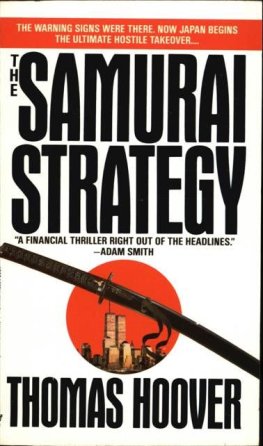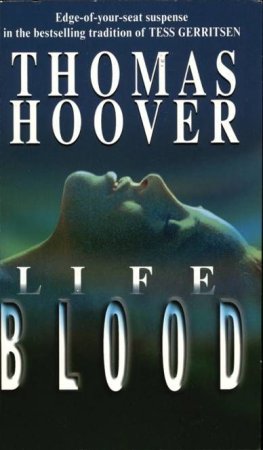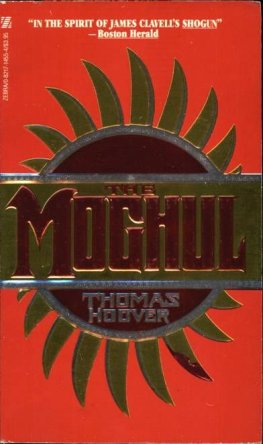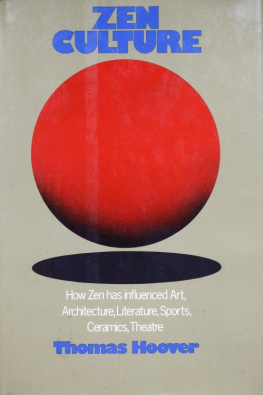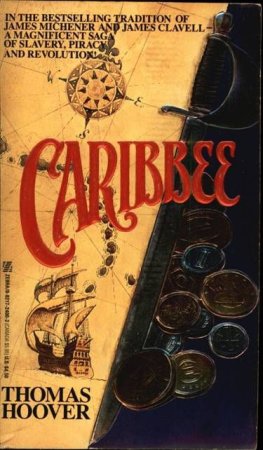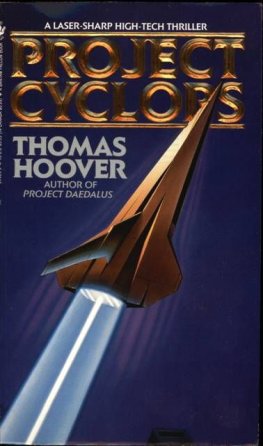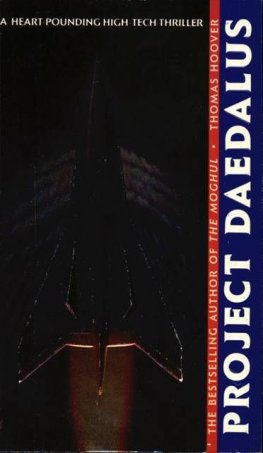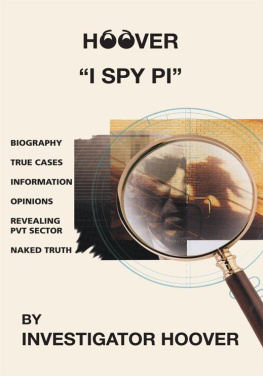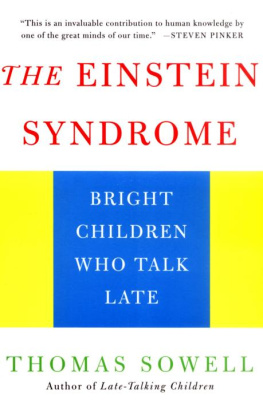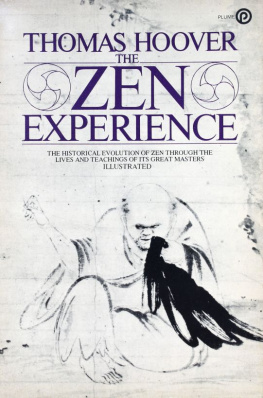Thomas Hoover - Syndrome
Here you can read online Thomas Hoover - Syndrome full text of the book (entire story) in english for free. Download pdf and epub, get meaning, cover and reviews about this ebook. genre: Detective and thriller. Description of the work, (preface) as well as reviews are available. Best literature library LitArk.com created for fans of good reading and offers a wide selection of genres:
Romance novel
Science fiction
Adventure
Detective
Science
History
Home and family
Prose
Art
Politics
Computer
Non-fiction
Religion
Business
Children
Humor
Choose a favorite category and find really read worthwhile books. Enjoy immersion in the world of imagination, feel the emotions of the characters or learn something new for yourself, make an fascinating discovery.

- Book:Syndrome
- Author:
- Genre:
- Rating:4 / 5
- Favourites:Add to favourites
- Your mark:
- 80
- 1
- 2
- 3
- 4
- 5
Syndrome: summary, description and annotation
We offer to read an annotation, description, summary or preface (depends on what the author of the book "Syndrome" wrote himself). If you haven't found the necessary information about the book — write in the comments, we will try to find it.
Syndrome — read online for free the complete book (whole text) full work
Below is the text of the book, divided by pages. System saving the place of the last page read, allows you to conveniently read the book "Syndrome" online for free, without having to search again every time where you left off. Put a bookmark, and you can go to the page where you finished reading at any time.
Font size:
Interval:
Bookmark:
Thomas Hoover
Syndrome
"The potential [of stem cells] for saving lives. . may be unlimited. Given the proper signal or environment, stem cells, transplanted into human tissue, can be induced to develop into brain, heart, skin, bone marrow cells-indeed any specialized cells. The scientific research community believes that the transplanted stem cells may be able to regenerate dead or dying human tissue, reversing the progress of disease."
Michael J. Fox, The New York Times (Op-Ed), November 1, 2000Chapter 1
Sunday, April 5
6:49a.m.
Alexa Hampton was awakened by a sensation in her chest. The alarm wasn't set to go off for another eleven minutes, but she knew her sleep was finished.
Not again! She rolled over and slapped the blue pillowcase.
That little sound from her heart and the twinges of angina, that catchall for heart discomfort, was happening more and more now, just as Dr. Ekelman had warned her. But she wasn't going to let it stop her from living her life to the fullest as long as she could, and right now that meant having her morning run.
She curled her legs around, onto the floor, reached for a nitroglycerin tab, and slipped it under her tongue. Known as a vasodilator, the nitro lowered the workload on her heart by expanding her veins. It should get her through the workout. ..
That was when she felt a warm presence rub against her leg.
"Hi, baby." Still sucking on the tab, she reached over and tousled Knickers' gray-and-white hair, then pushed it back from her dog's eyes. Her Old English sheepdog, a huge hirsute off-road vehicle, turned and licked her hand. Knickers was ready to hit the trail.
She'd been dreaming of Steve when the chest tightness came, and maybe the emotion that stirred up had caused the angina. She still dreamed of him often, and it was always someplace where they had been together and loved, and they were ever on the brink of some disaster. That frequently caused her heart to race, waking her.
This time it was the vacation they took six years ago, in the spring. They were sailing off Norman's Cay in the Bahamas. She was raising the jib, the salt spray in her hair, but then she looked up and realized they were about to ram a reef.
She felt the dreams were her unconscious telling her to beware her current precarious condition. If, as is said, at the moment of your passing, your entire life flashes before your eyes, then the dreams were like that, only in slow motion. It was as though she were being prepared for something. The dreams were a premonition. She had a pretty good idea of what.
Ally had had rheumatic fever when she was five, which went undetected long enough to scar a valve in her heart. The formal name was rheumatoid aortic stenosis, a rare, almost freakish condition that had shaped her entire life. The pediatrician at Mount Sinai had told her parents they should think twice about allowing her to engage in any vigorous activity. Her heart's function could be deceptively normal during childhood but when she got older. . Well, why stress that organ now and hasten the inevitable day when it could no longer keep up with the rest of her body?
She had refused to listen. She'd played volleyball in grade school, basketball in high school, and she became a disciplined runner when she went to Columbia to study architecture. She wanted to prove that you could make your heart stronger if you believed hard enough and wanted to live hard enough.
Now, though, it was all catching up. She'd had a complete checkup two weeks ago Thursday, including a stress test and
Doppler echocardiogram, and Dr. Ekelman had laid out the situation, gazing over her half-lens glasses and pulling at her chin. The normal twinkle in her eyes was entirely absent.
"Alexa, your condition has begun worsening. There's a clear aortic murmur now when your pulse goes up. How long can you go on living in denial? You really can't keep on stressing your heart the way you have been. You can have a normal life, but it's got to be low-key. Don't push your luck."
"Living half a life is so depressing," she'd declared, not entirely sure she meant it. "It's almost worse than none at all."
"Ally, I'm warning you. If you start having chest sensations that don't respond to nitro, call me immediately. I mean that. There's a new drug, Ranolazine, that temporarily shifts your heart over to using glucose as a fuel instead of fatty acids and provides more energy for a given amount of oxygen. It will make the pain back off, but I only want to start you on that as a last resort. That's the final stop before open-heart surgery and a prosthetic aortic valve."
Day by day, the illusion of normality was getting harder and harder to maintain. She had been playing second violin in an amateur string quartet called the West Village Oldies, but a month ago she'd had to drop out. She didn't have the endurance to practice enough to keep up with the others. Blast. It was having to give up things you love that really hurt.
Still, she was determined to keep a positive attitude. There was your heart, and then there was heart. You had to understand the difference.
She lay back to wait for the alarm and try to compose her mind. This Sunday morning was actually the one day of the year she most dreaded.The anniversary.
It had been back when Steve was still alive. They were living in the Chelsea neighborhood of New York, in a brownstone town house they were renting. The rent was high, but they were doing all right. Steve was a political consultant, who had helped some fledgling candidates overcome the odds and win important elections. In between campaigns here, he also got work in the nominal democracies in Latin America.
She was a partner in a small firm of architects who had all been at Columbia together and decided to team up after graduation and start a business. There were four of them-she was the only woman-and it was a struggle at the beginning. For the first three years they had to live off crumbs tossed their way by the big boys, subcontracts from Skidmore and other giants. They felt like they were a high-paid version of Manpower, Inc., doing grunt work, designing the interiors of shopping malls in the Midwest and banks in Saudi Arabia, while their prime contractors got to keep all the sexy, big-budget jobs that called for creativity, like a glass-and-steel office tower in L.A.
But then interesting work finally started to trickle in, including a plum job to convert a massive parking garage in Greenwich Village into a luxury condominium. Through a wild coincidence (or luck) she had personally designed the apartment she later ended up buying for herself.
Just when everything seemed to be turning around and going her way, an event happened that stopped her in her tracks. Five years ago on this very day, April 5, her mother, Nina, phoned her at six-thirty in the morning and, in a trembling voice that still haunted, announced that her father was dead.
Arthur Wade Hampton was fifty-nine and hed been cleaning his Browning shotgun for an early-morning hunting trip to Long Island-so hed claimed the night before-and she was awakened by the explosion of a discharge. A horrible accident in the kitchen of their co-op in the West Village.
Like Hemingway. Thinking back, they both realized it was the wrong time of year to hunt anything-but they both also knew he wanted the world to think that. Moreover, it was precisely the kind of vital lie they'd need to get through the pointed questions and skeptical looks that lay ahead. It was a knowledge all the more palpable for being unspoken. There's no time like those first moments after a tragedy to create a special reality for yourself.
It was only in the aftermath that she managed to unravel the reason. He owned and operated an interior-design firm in SoHo called CitiSpace, and he had mortgaged it to the hilt. He was on the verge of bankruptcy. (That was why Ally had not spoken to her younger brother, Grant, in the last 4 1/2 years.)
Font size:
Interval:
Bookmark:
Similar books «Syndrome»
Look at similar books to Syndrome. We have selected literature similar in name and meaning in the hope of providing readers with more options to find new, interesting, not yet read works.
Discussion, reviews of the book Syndrome and just readers' own opinions. Leave your comments, write what you think about the work, its meaning or the main characters. Specify what exactly you liked and what you didn't like, and why you think so.

